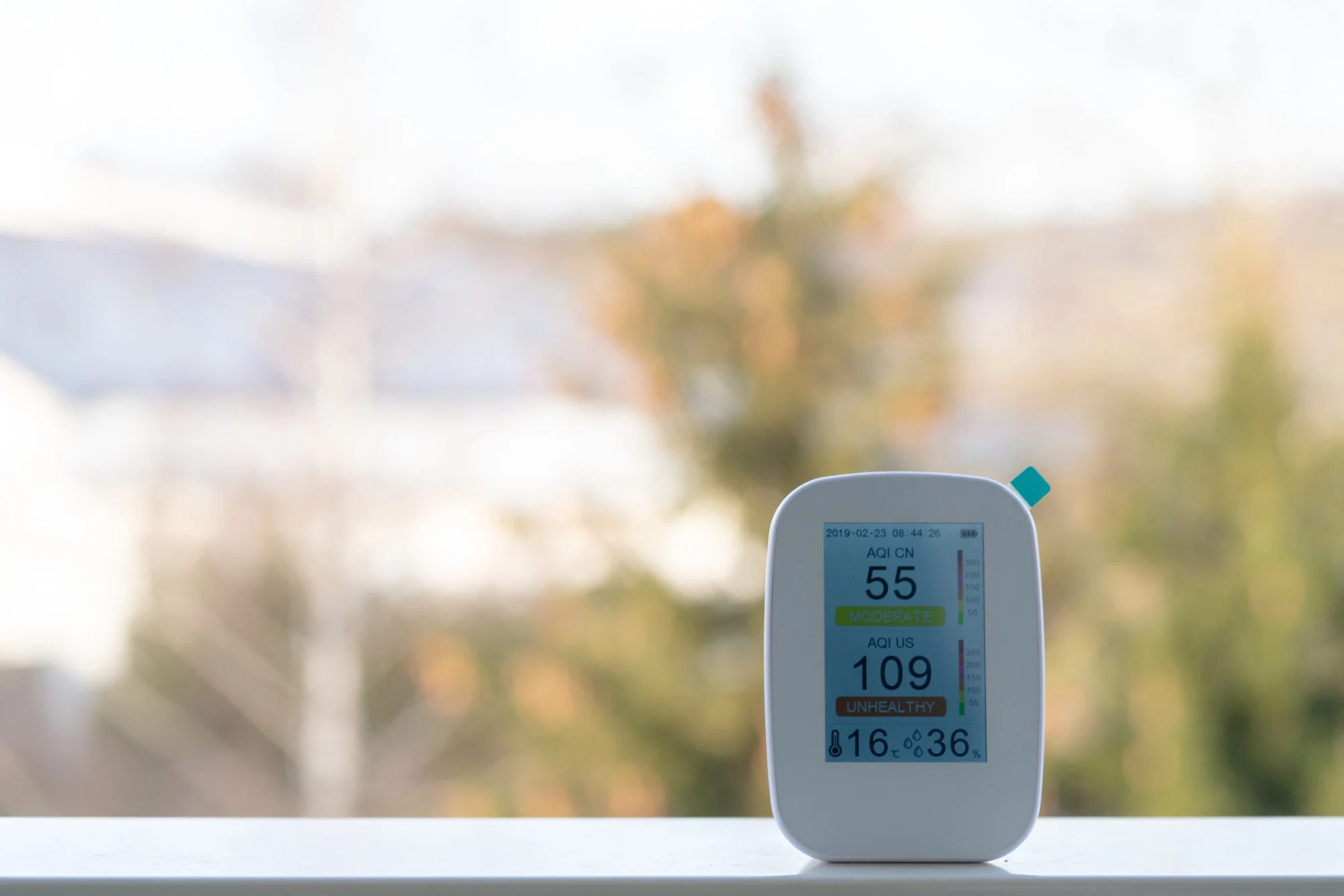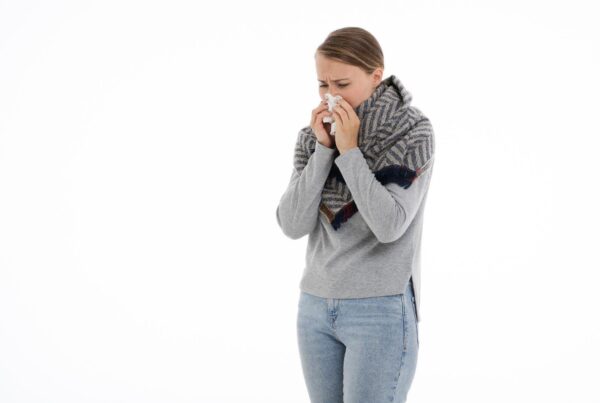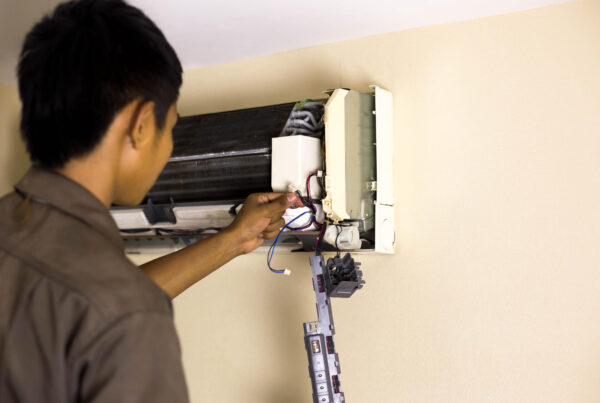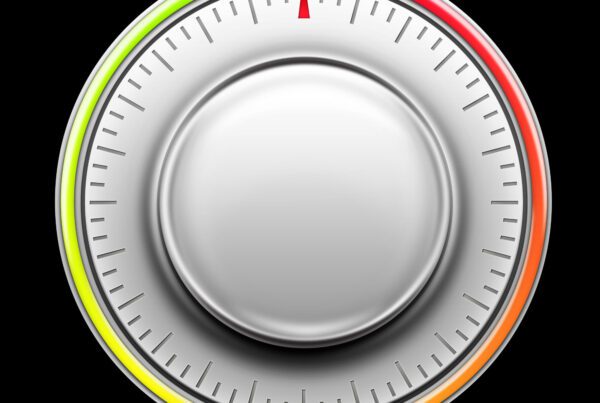You probably had no idea, but indoor air quality worsens at night. It’s due to many reasons, but mostly that as the temperature drops at night, it traps car emissions and other pollutants near the ground in the house. This is especially true in poorly ventilated homes.
And guess when homes are poorly ventilated the most? During wintertime! This is when folks want to conserve heat and keep their windows and doors closed at all times.
Poor indoor air quality can have adverse effects on your health, especially during the winter months when you spend more time indoors.
In this article, we’ll explore the importance of maintaining good indoor air quality in Atascocita, TX, during the winter and provide essential tips to help you achieve a healthier home environment.
10 Tips for Improving Winter Indoor Air Quality
Just because bad indoor air quality is common during wintertime doesn’t mean that you have to sit back and take it. Take the following steps to get the air in your home fresh and breathable again.
1. Maintain Proper Ventilation
It’s essential to let fresh air in regularly, even during the winter. Open windows for a few minutes daily to exchange indoor air with fresh outdoor air. This helps reduce the concentration of indoor pollutants.
2. Use an Air Purifier
Consider using an air purifier to help remove airborne particles and allergens. High-efficiency particulate air (HEPA) filters can capture particles as small as 0.3 microns.
3. Regularly Change Air Filters
If you have a forced-air heating system, make sure to change the air filters every one to three months. Clean filters ensure better air circulation and filtration.
4. Control Humidity Levels
Use a dehumidifier, if necessary, to keep indoor humidity levels between 30-50%. Maintaining proper humidity helps prevent mold and mildew growth.
5. Properly Ventilate Combustion Appliances
Ensure gas appliances are well-ventilated, and install a carbon monoxide detector in your home. Regularly inspect and maintain these appliances to prevent carbon monoxide leaks.
6. Keep Floors Clean
Regularly sweep, vacuum, and mop floors to reduce dust and allergens. Consider using a vacuum cleaner with a HEPA filter to trap small particles effectively.
7. Dust and Vacuum Smartly
When dusting and vacuuming, use a damp cloth or a microfiber duster to capture dust and prevent it from becoming airborne. Vacuum cleaners with HEPA filters are also helpful in reducing dust circulation.
8. Reduce VOCs
Limit the use of VOC-emitting products. When possible, choose low-VOC or VOC-free alternatives for paints, cleaning agents, and other household products.
9. Maintain a Clean Home
Regular cleaning of your home can help reduce indoor air pollutants. Pay attention to areas where dust and allergens can accumulate, such as rugs, carpets, and curtains.
10. Ensure Proper Insulation and Sealing
Proper insulation and sealing are essential to keeping your home warm during the winter. Well-sealed windows and doors will not only help maintain a comfortable indoor temperature but also prevent outdoor pollutants from entering your home.
Why Indoor Air Quality Matters
Atascocita enjoys a relatively mild winter compared to some northern states, but it still experiences temperature drops, leading to increased indoor heating and reduced ventilation. This can result in the buildup of indoor air pollutants. These might include the ones listed below.
Dust and Allergens
As heating systems circulate air, they often stir up dust, pet dander, and allergens. This can worsen allergies and respiratory conditions, especially in airtight homes.
Mold and Mildew
Texas’s humidity can lead to moisture problems. This fosters mold and mildew growth in poorly ventilated areas.
Volatile Organic Compounds (VOCs)
VOCs are emitted by household products such as paints, cleaning agents, and air fresheners. Inadequate ventilation can lead to their accumulation, potentially causing health issues.
Carbon Monoxide (CO)
Gas appliances like heaters and stoves can emit carbon monoxide, a colorless, odorless gas that can be life-threatening if undetected. That’s why 48 states have made carbon monoxide detectors mandatory for all one- and two-story homes.
Additional Considerations About Winter Air Quality
Atascocita’s climate, which tends to be humid, may present unique challenges for winter indoor air quality. But it’s absolutely fixable. To address these, consider the following region-specific tips:
Prevent Mold
Mold growth can be particularly problematic in humid conditions. To prevent mold, use exhaust fans in bathrooms and kitchens to reduce moisture, repair any water leaks promptly, and keep indoor humidity levels in check.
Invest in a Humidifier
While humidity can be an issue in Atascocita, the winter months can sometimes be dry. To maintain an optimal indoor humidity level, you may need to use a humidifier.
Optimum humidity levels are around 30 to 50% (some studies say 40 to 60%), but it will depend entirely on your preference. Try out different humidity levels to see what feels comfortable on your skin and body.
Regular HVAC Maintenance
Ensure your heating, ventilation, and air conditioning (HVAC) system is adequately maintained. High humidity can cause HVAC components to deteriorate more quickly, so regular inspections are vital.
Protect Against Allergens
In a humid environment like Atascocita, dust mites and mold are more common allergens. Use allergen-proof covers for pillows and mattresses and regularly wash bedding in hot water to control these allergens.
Indoor Plants
Indoor plants can help improve air quality by removing certain pollutants. However, be cautious, as overwatering indoor plants can lead to mold growth.
Some indoor plants that are great for improving winter indoor air quality are:
- Spider plant
- Snake plant
- Peace Lily
- Sworn Fern
- Weeping Fig
Having these green buddies in the house will also pep up your mood, which might worsen in the wintertime due to the overcast or cloudy weather.
Pay Attention to Your Home’s Winter Indoor Air Quality
Don’t get paranoid about your home’s indoor air quality, but pay attention to how you feel when you spend time at home. If you are feeling off somehow, it could be because indoor air quality in the winter has worsened.
Guy’s AC & Heating can help you with any issues you might have with mold, indoor humidity levels, or anything else related to your HVAC system. You are not alone in this journey to improve your home’s indoor air quality.
Contact our team (we even have a 24-hour emergency line) today to learn more about services and offerings.





